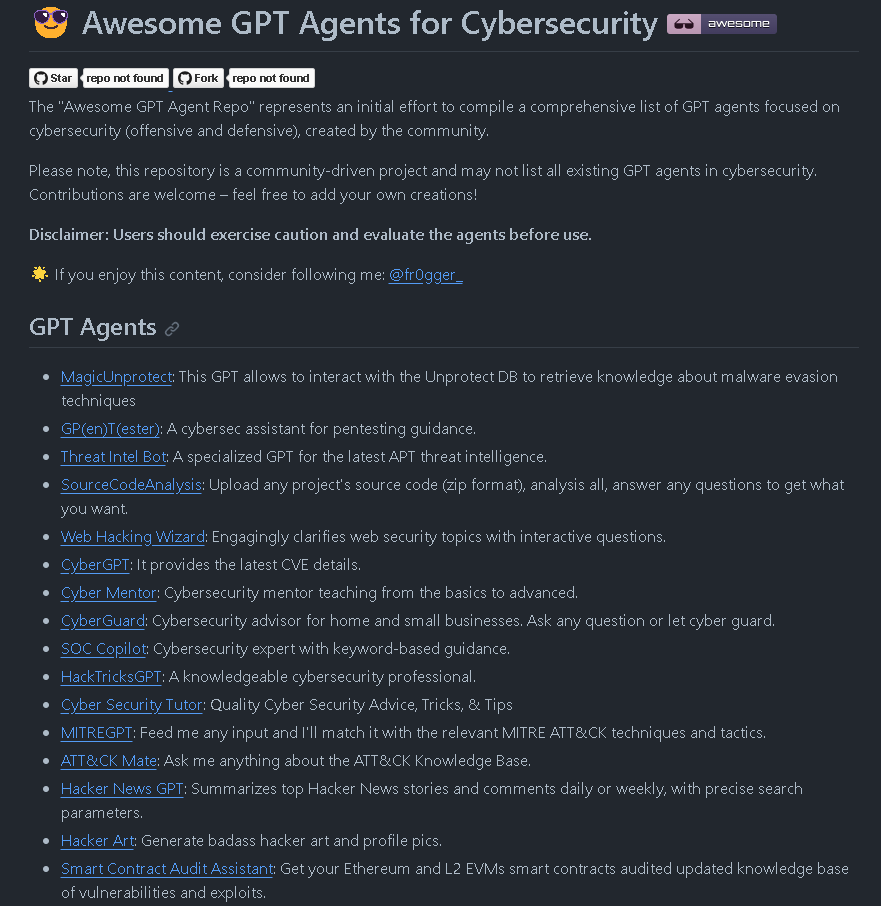Yes, cybersecurity requires coding for interpreting malicious activity and writing efficient code. In today’s digital age, where cyber threats are becoming increasingly prevalent, the importance of cybersecurity has reached new heights.
Many individuals are drawn to the cybersecurity field due to the promising career opportunities it offers. However, there is often confusion surrounding the technical skills required for a career in cybersecurity. One common question that frequently arises is whether or not coding skills are necessary.
Understanding the role of coding in cybersecurity is crucial for individuals seeking to enter this field. This article will provide insights into the significance of coding in cybersecurity, shedding light on its relevance and the specific areas where coding skills are essential. Additionally, we will explore the various programming languages that are prevalent in the field of cybersecurity and the ways in which coding expertise can enhance a cybersecurity professional’s capabilities.
Can Cybersecurity Be Done Without Coding?

When exploring a career in cybersecurity, many individuals wonder whether coding skills are essential for success in this field. The truth is that while coding can be valuable in certain cybersecurity roles, there are numerous positions that do not require extensive programming knowledge. Let’s delve into the various aspects of this topic to gain a better understanding of whether cybersecurity can be pursued without coding.
Various Cybersecurity Positions That Don’t Require Coding
1. Security Analyst: This position involves monitoring and analyzing security measures, without the need for extensive coding skills.
2. Security Consultant: Individuals in this role often focus on advising clients on security solutions and strategies, with less emphasis on coding.
3. Incident Responder: Responders are primarily focused on reacting to and resolving security incidents, with minimal coding requirements in many cases.
Why Coding Skills Are Not Always Required In Entry-level Jobs
1. Entry-level cybersecurity roles often emphasize foundational knowledge and the ability to apply existing tools and protocols rather than requiring advanced coding skills.
2. Understanding the basics of cybersecurity, network security, and system administration is typically more critical than proficiency in coding when starting out in this field.
The Importance Of Coding Skills In Advancing In The Field
1. Specialized Roles: As individuals progress in their careers, certain specialized cybersecurity roles may require coding skills for tasks such as developing security tools or conducting in-depth analysis.
2. Cybersecurity Engineering: By gaining proficiency in coding, individuals can contribute to creating and implementing robust security solutions and handling more complex security challenges.
Is Coding Important For Cybersecurity?

Cybersecurity is an ever-evolving field that demands a diverse skillset to combat the myriad of digital threats facing organizations today. An integral question that arises in the realm of cybersecurity is whether coding is crucial for professionals in this field. Understanding the relationship between coding and cybersecurity, the role of coding in interpreting malicious activity, and the importance of writing efficient and effective code are essential aspects to consider in this context.
Understanding The Relationship Between Coding And Cybersecurity
In cybersecurity, coding plays a vital role in various aspects, from interpreting malicious activities to developing security solutions. Having a fundamental understanding of coding concepts is crucial for cybersecurity professionals as it enables effective analysis of security breaches and proactive threat detection.
The Role Of Coding In Interpreting Malicious Activity
Coding empowers cybersecurity experts to interpret and analyze the behavior of malicious actors within their networks. By harnessing coding skills, professionals can decipher complex patterns of cyber threats, leading to the identification and mitigation of potential risks before they escalate.
Writing Code For Efficient And Effective Work
Efficient and effective coding practices are essential for cybersecurity professionals to streamline their daily operations. Writing code tailored to specific security needs ensures a proactive approach to cybersecurity, enabling swift responses to emerging threats while optimizing overall security protocols.
What Coding Language Is Used In Cybersecurity?

Cybersecurity does require coding knowledge, with Python being the most prevalent programming language used in the field. However, there are also cybersecurity positions available that do not involve coding.
The Prevalence And Power Of Python In Cybersecurity
Python is easily the most used programming language in cybersecurity. Its simple and readable syntax, extensive libraries, and flexibility make it an ideal choice for professionals in the cybersecurity field. From penetration testing to data analysis, Python provides a wide range of capabilities that are essential for protecting digital assets and identifying vulnerabilities. Whether you’re a beginner or an expert in cybersecurity, having a strong foundation in Python can greatly enhance your skills and employability in this growing industry.
Why Python Is The Go-to Language In Cybersecurity
There are several reasons why Python has become the go-to language in cybersecurity: 1. Simplicity and Readability: Python’s clean and intuitive syntax makes it easy to learn and understand, even for those without a strong programming background. This simplicity allows cybersecurity professionals to quickly write, modify, and execute code, saving valuable time and effort. 2. Extensive Libraries: Python has a vast collection of libraries and modules specifically designed for cybersecurity tasks.
These libraries provide ready-made functions and tools that can be used to analyze network traffic, detect malware, perform cryptography, and much more. Some popular cybersecurity libraries in Python include Scapy, PyCrypto, and Requests. 3. Flexibility and Scalability: Python’s versatility allows it to be used for a wide range of cybersecurity tasks, from simple scripting to complex automation. It can seamlessly integrate with other programming languages and technologies, making it a valuable tool for building robust cybersecurity solutions. 4. Community Support: Python has a large and active community of developers who contribute to its continuous improvement.
This means that there is a wealth of online resources, forums, and libraries available to assist cybersecurity professionals in solving problems and staying up to date with the latest industry trends. 5. Rapid Prototyping and Development: Python’s high-level nature and extensive libraries enable cybersecurity professionals to quickly prototype and develop solutions. This is particularly useful in the fast-paced world of cybersecurity, where time is of the essence when responding to threats and vulnerabilities.
In conclusion, Python is the dominant programming language in cybersecurity and offers numerous advantages to professionals in the field. Its simplicity, extensive libraries, flexibility, and strong community support make it an essential tool for tackling various cybersecurity challenges. Whether you’re analyzing network traffic, developing security tools, or performing data analysis, Python is a language that should be in every cybersecurity professional’s toolkit.
Is Cybersecurity Harder Than Coding?

Cybersecurity and coding are distinct fields, with cybersecurity emphasizing network comprehension and system management, while coding requires expertise in programming languages and frameworks. Although some cybersecurity roles may involve coding, many entry-level positions do not require it. Ultimately, both disciplines demand specialized knowledge and skills, but the extent of coding varies in cybersecurity.
Comparing The Knowledge Level And Demands Of Cybersecurity And Coding
When it comes to comparing the knowledge level and demands of cybersecurity and coding, it’s important to understand that both fields require specialized skills and expertise. However, the areas of focus and the level of difficulty may vary.
While cybersecurity involves less coding, it demands a deeper comprehension of networks, operating systems, system management, and core security principles. Cybersecurity professionals need to understand coding concepts in order to correctly interpret the activity of malicious actors on their networks. They must also be able to write code to perform their own work more efficiently and effectively.
On the other hand, coding itself requires expertise in programming languages and frameworks. Programmers need to have a strong understanding of coding principles, syntax, algorithms, and data structures. They must be proficient in languages such as Python, Java, C++, or Ruby, depending on their area of specialization.
Key Areas Of Expertise For Cybersecurity Professionals
When it comes to expertise in cybersecurity, professionals need to possess a wide range of knowledge and skills. Here are some key areas of expertise:
- Network Security: Understanding network protocols, firewalls, intrusion detection systems, and implementing secure network configurations.
- Operating Systems: Knowledge of different operating systems such as Windows, Linux, and Mac, including their vulnerabilities and how to secure them.
- Incident Response: Being able to detect and respond to security incidents effectively, investigating and analyzing security breaches, and implementing remediation measures.
- Secure Coding Practices: Understanding secure coding principles, identifying and fixing vulnerabilities in code, and ensuring the development of secure software or applications.
- Encryption and Cryptography: Knowledge of encryption algorithms, secure communication protocols, and cryptographic techniques to protect sensitive data.
- Compliance and Regulations: Understanding various industry standards and regulatory requirements, such as GDPR or HIPAA, and ensuring compliance.
Expertise In Programming Languages And Frameworks For Coding
When it comes to coding, expertise in programming languages and frameworks is crucial. Programmers need to be skilled in a variety of languages and frameworks to develop robust and secure software. Some key areas of expertise include:
- Python: Python is easily the most used programming language in cybersecurity. Its versatility and extensive library support make it ideal for tasks such as vulnerability scanning, malware analysis, and scripting.
- Java: Java is commonly used for developing enterprise-level applications and is known for its strong security features.
- C++: C++ is often used for low-level programming and building secure systems due to its performance and control over hardware resources.
- Ruby: Ruby’s simplicity and readability make it a popular choice for web application development, which requires robust security measures.
In conclusion, while both cybersecurity and coding require specific skills and expertise, the areas of focus and demands differ. Cybersecurity professionals need a deep understanding of networks, operating systems, and core security principles, while coding requires expertise in programming languages and frameworks. Ultimately, both fields play crucial roles in safeguarding digital systems and networks from threats.
Do You Need To Learn Coding For A Successful Career In Cybersecurity?
In today’s digital landscape, cybersecurity is a critical field that plays a vital role in protecting individuals and organizations from malicious cyber threats. Aspiring professionals often wonder if coding skills are a necessity for a successful career in cybersecurity. Let’s explore this topic further to understand the importance of coding in the field of cybersecurity.
Cybersecurity Job Titles That Don’t Require Coding Skills
Contrary to popular belief, there are numerous cybersecurity positions that don’t require extensive coding skills. These job roles focus more on other aspects of cybersecurity, such as:
- Information Security Analyst
- Security Consultant
- Security Operations Center (SOC) Analyst
- Security Auditor
- Incident Responder
These roles primarily involve tasks like risk assessment, vulnerability management, security policy development, and incident response, where coding skills are not the main requirement. However, having a basic understanding of coding concepts can still be beneficial in these positions.
The Benefits Of Understanding Coding For Career Advancement
While coding may not be a prerequisite for every cybersecurity role, it certainly offers numerous benefits for career advancement in the field. Some advantages of understanding coding in cybersecurity include:
- Enhanced Threat Analysis: Understanding coding languages helps cybersecurity professionals to analyze and detect threats more effectively. By delving into the code, professionals can identify vulnerabilities, suspicious patterns, and potential attacks.
- Custom Tool Development: Being proficient in coding enables professionals to develop custom tools and scripts to automate routine tasks, enhance cybersecurity operations, and save time and effort.
- Cybersecurity Research: In-depth knowledge of coding allows professionals to contribute to cybersecurity research and development. By understanding how various coding languages work, professionals can explore new ways to detect and prevent cyber threats.
- Cross-Functional Collaboration: Proficiency in coding facilitates effective collaboration with developers and IT teams. Cybersecurity professionals can communicate their requirements, understand the technical aspects of applications, and ensure secure coding practices.
- Specialization Opportunities: With coding skills, professionals can specialize in areas like penetration testing, malware analysis, or secure software development, opening up new career paths and opportunities.
Ultimately, while coding may not be essential for all cybersecurity job roles, it undoubtedly provides skills and knowledge that can greatly benefit the career growth of cybersecurity professionals.

Credit: twitter.com
Conclusion
In the realm of cybersecurity, there is a common question: Does it require coding skills? The answer is that while coding may not be necessary for every cybersecurity role, having coding knowledge can greatly enhance a professional’s ability to interpret malicious activity and perform tasks more effectively.
Python is particularly valuable in the field. However, it’s important to note that there are also cybersecurity positions that do not require extensive coding and programming expertise. Ultimately, the decision to learn coding for cybersecurity is up to the individual and their career goals.



